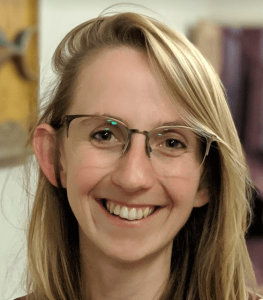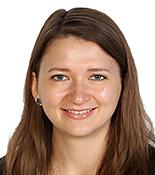
Deepa Agashe
National Centre for Biological Sciences
India
Course hub: Bangalore
EMBO Practical Course
This is a two-hub course taking place in parallel at both EMBL Heidelberg, Germany and the Bangalore Life Science Cluster (BLiSC) Campus in Bangalore, India. Applicants can apply for either location and are encouraged to apply for the one that is closest to them.
Metagenomics studies are rapidly uncovering the compositional richness of microbial communities in diverse habitats ranging from the oceans to the human gut. While their fundamental role in our health and environment is undeniable, there is an urgent need for unravelling molecular mechanisms underlying the dynamics of these communities. This requires a combined experimental and computational approach. Recent studies (including those from the organisers’ and speakers’ labs) have underlined the success of such integrative approaches. For example, emergence of cell subpopulations (Varahan et al. eLife 2019, 2020), and long-term stability (Blasche, Kim et al. Nat Microbiol. 2021) through metabolic cross-feeding.
As researchers world-wide map species dynamics in the ecosystems of their interest, this course will provide the necessary overview and tools for moving from cataloguing to identifying key interaction agents, especially metabolites. This will include integrating species and metabolite dynamics data, as well as leveraging the power of genome-scale metabolic models to predict community interactions.
This course is aimed at PhD students and post-doctoral researchers who would apply the methods covered in the course. Applicants are requested to send a motivation letter summarizing their current research and their need for the methods addressed in this course. Furthermore, there is a specific questionnaire to query the background and access to the relevant methods. We aim for a broad geographical distribution of participants to identify needs for applying the methods in different countries, this includes newer EU member states. To ensure optimal tutoring during the practicals, we
target for 20 participants (10 each site). The course will bring together participants from various disciplines (microbiology, metabolomics, modelling, ecology) and ensure a distribution on both sites.
The main goal of the course is to equip the participants with the state-of-the-art concepts in microbial ecosystems and introduce them to the key tools towards gaining mechanistic insights in community dynamics. The central learning objective is that the participants will be able to apply these concepts and tools in their own research. Further, we also aim at enabling scientific networking among the participants (including speakers and trainers) and foster dialogue between scientists from different areas (microbiology, metabolomics, modelling, ecology).
“The two hub course organised by EMBL was a great success where participants like me not only learnt wet lab techniques like LC-MS but also learnt data visualisation using R and python which will be a great help while analysing our own data.” – Nidhi Yadav, ICGEB, New Delhi, India
“This EMBO course was very well-organised and provided me essential tools and new approaches that I will apply in my research to study metabolic interactions within microbial communities. The combination of wet- and dry-lab techniques, as well as the involvement of two hubs in Germany and India, made the course very complete and enriching.” – Laura Camus, IMIT – University of Tübingen, Germany
This event has been granted the following EMBO sustainability badge:


National Centre for Biological Sciences
India
Course hub: Bangalore

EMBL Heidelberg
Germany
Course hub: Heidelberg

University of Cambridge
United Kingdom
Course hub: Bangalore

EMBL Heidelberg
Germany
Course hub: Heidelberg

University of Cambridge
United Kingdom
Course hub: Bangalore

University of Manchester
United Kingdom
Virtual speaker

EMBL Heidelberg
Germany
Course hub: Heidelberg

Indian Institute of Science Education and Research, Pune
India
Course hub: Bangalore

EMBL Heidelberg
Germany
Course hub: Heidelberg

University of Osnabrueck
Germany
Course hub: Heidelberg

Institute for Stem Cell Biology and Regenerative Medicine
India
Course hub: Bangalore

University of California, Irvine
USA
Course hub: Bangalore

Institute for Stem Cell Science and Regenerative Medicine
India
Course hub: Bangalore

Genome Institute of Singapore, A*STAR & National University of Singapore
Singapore
Course hub: Bangalore

EMBL Heidelberg
Germany
Course hub: Heidelberg

Middlebury College
USA
Virtual speaker

National Center For Biological Sciences
India
Course hub: Bangalore

EMBL Heidelberg
Germany
Course hub: Heidelberg

EMBL Heidelberg
Germany
Institute for Stem Cell Science and Regenerative Medicine
India
Course hub: Bangalore

Institute of Bioinformatics and Applied Biotechnology
India
Course hub: Bangalore

EMBL Heidelberg
Germany
Course hub: Heidelberg

ETH Zurich
Switzerland
Course hub: Heidelberg

EMBL Heidelberg
Germany
Course hub: Heidelberg

EMBL Heidelberg
Germany
Course hub: Heidelberg

University of Cambridge
United Kingdom
Course hub: Bangalore

Institute for Stem Cell Biology and Regenerative Medicine
India
Course hub: Bangalore

University of Cambridge
United Kingdom
Course hub: Heidelberg

EMBL Heidelberg
Germany
Course hub: Heidelberg

Scientifc Training Manager
EMBL Heidelberg
Germany
Course hub: Heidelberg

Course and Conference Manager
EMBL Heidelberg
Germany
Course hub: Heidelberg
Are you on social media? Post using #EMBOMicroCom and don’t forget to tag @EMBLEvents
| Time Europe/Berlin | Speaker | Time India/Bangalore |
|---|---|---|
| 10:00 – 10:30 | On-Boarding Day: Welcome and short introduction | 13:30 – 14:00 |
| 10:30 – 11:00 | Course overview on eCampus /introduction to pre-course work | 14:00 – 14:30 |
| 11:00 – 11:30 | Software test for pre-course work | 14:30 – 15:00 |
| 11:30 – 12:00 | Speed networking between cross-site participants | 15:00 – 15:30 |
| Time Europe/Berlin | Speaker | Time India/Bangalore |
|---|---|---|
| Zoom link for the day shared in eCampus | ||
| 11:20 | Heidelberg hub: – Shuttle from ISG Hotel to EMBL – Light lunch upon arrival at EMBL | |
| 11:30 – 12:00 | Heidelberg hub and Bangalore hub: registration and technical set-up | 15:00 – 15:30 |
| 12:00 – 12:15 | Welcome and house notes (shared via Zoom) at both sites – joint Treasure hunt challenge introduced. | 15:30 – 15:45 |
| 12:15 – 12:45 | Course overview (Introduction to format, expectations, timelines) Sonja Blasche – University of Cambridge, UK Maria Zimmermann – EMBL Heidelberg, Germany | 15:45 – 16:15 |
| 12:45 – 14:15 | Flash Talks by participants, organisers, trainers, speakers (concurrent coffee break) | 16:15 – 17:45 |
| 14:15 – 15:15 | Lecture 1: The leaf microbiota: disassembling and rebuilding to explore plant microbe interactions Julia Vorholt – ETH Zurich, Switzerland | 17:45 – 18:45 |
| 15:15 – 15:30 | Coffee break | 18:45 – 19:00 |
| 15:30 – 16:15 | Practical session 1: Kefir culture inoculation Heidelberg hub trainers: Matthias Gross – EMBL Heidelberg, Germany Denise Selegato – EMBL Heidelberg, Germany Bangalore trainers: Simran Aulakh – University of Cambridge, UK Sonja Blasche – University of Cambridge, UK Ganesh Muthu – Institute for Stem Cell Science and Regenerative Medicine, India Sreesa Sreedharan – Institute for Stem Cell Science and Regenerative Medicine, India Rajalakshmi Srinivasan – Institute of Bioinformatics and Applied Biotechnology, India | 19:00 – 19:45 |
| Bangalore hub: Dinner followed by networking | 19:45 – 21:15 | |
| 16:15 – 17:30 | Heidelberg hub: Challenges and Expectations followed by networking time Kiran Patil – University of Cambridge, UK Elisabeth Zielonka – EMBL Heidelberg, Germany Maria Zimmermann – EMBL Heidelberg, Germany | |
| 17:30 – 17:45 | Heidelberg hub: Bus from EMBL to the ISG Hotel | |
| 18:00 – 20:00 | Heidelberg hub: Dinner at the ISG Hotel followed by networking |
| Time Europe/Berlin | Speaker | Time India/Bangalore |
|---|---|---|
| Zoom link for the day shared in eCampus | ||
| Bangalore hub: Overview of the day Nitish Malhotra – University of California, Irvine, USA | 09:00 – 9:15 | |
| Bangalore hub: Networking: Challenges and expectations Sonja Blasche – University of Cambridge, UK Nitish Malhotra – University of California, Irvine, USA | 09:15 – 10:15 | |
| Bangalore hub: Coffee break | 10:15 – 10:30 | |
| Bangalore hub: Practical session 1: Experimental design and kefir culture set-up and sampling Trainers: Sonja Blasche – University of Cambridge, UK Ganesh Muthu – Institute for Stem Cell Science and Regenerative Medicine, India Sreesa Sreedharan – Institute for Stem Cell Science and Regenerative Medicine, India | 10:30 – 11:30 | |
| Bangalore hub: Practical session 4: Interaction mapping plating experiment: inoculate background plates Trainers: Simran Aulakh – University of Cambridge, UK Sonja Blasche – University of Cambridge, UK Pratibha Sanjenbam – National Center For Biological Sciences, India | 11:30 – 12:30 | |
| Bangalore hub: Lunch | 12:30 – 13:30 | |
| 08:40 | Heidelberg hub: Bus from ISG Hotel to EMBL | |
| 08:55 – 09:00 | Heidelberg hub: Overview of the day Matthias Gross – EMBL Heidelberg, Germany Denise Selegato – EMBL Heidelberg, Germany | |
| 09:00 – 10:00 | Heidelberg hub: Practical session 1: Experimental design and kefir culture set-up and sampling Trainers: Matthias Gross – EMBL Heidelberg, Germany Denise Selegato – EMBL Heidelberg, Germany | |
| 10:00 – 11:00 | Lecture 2: Inter-species interactions in the insect gut Deepa Agashe – National Center For Biological Sciences, India | 13:30 – 14:30 |
| 11:00 – 11:15 | Coffee break | 14:30 – 14:45 |
| 11:15 – 12:15 | Lecture 3: Probing the role of microbial communities in human health with genomic tools Niranjan Nagarajan – Agency for Science, Technology and Research (A*STAR), Singapore | 14:45 – 15:45 |
| 12:15 – 12:45 | Heidelberg hub: Practical session 4: Interaction mapping plating experiment – prepare plating experiment: inoculate background plates Trainers: Matthias Gross – EMBL Heidelberg, Germany Denise Selegato – EMBL Heidelberg, Germany | |
| 12:45 – 13:45 | Heidelberg hub: Lunch | |
| Bangalore hub: Practical session 1 continued: Experimental design and kefir culture set-up and sampling Trainers: Sreesa Sreedharan, Ganesh Muthu – Institute for Stem Cell Science and Regenerative Medicine, India Pratibha Sanjenbam – National Center For Biological Sciences | 15:45 – 16:45 | |
| Bangalore hub: Practical session 4 continued: Interaction mapping plating experiment – array species plate and pin Trainers: Trainers: Simran Aulakh – University of Cambridge, UK Sonja Blasche – University of Cambridge, UK Pratibha Sanjenbam – National Center For Biological Sciences, India | 16:45 – 18:00 | |
| 13:45 – 14:30 | Heidelberg hub: Practical session 1 continued: Experimental design and kefir culture set-up and sampling Trainers: Matthias Gross – EMBL Heidelberg, Germany Denise Selegato – EMBL Heidelberg, Germany | |
| 14:30 – 15:00 | Coffee break and cross-site interaction via Zoom in small groups (grouped on topics, challenges from projects) | 18:00 – 18:30 |
| 15:00 – 16:00 | Group work: the 4 cross-site teams will discuss their practicals | 18:30 – 19:30 |
| Bangalore hub dinner | 19:30 – 20:45 | |
| 16:00 – 16:30 | Heidelberg hub: coffee break | |
| 16:30 – 17:45 | Heidelberg hub: Practical session 4 continued: Interaction mapping plating experiment – array species plate and pin Trainers: Matthias Gross – EMBL Heidelberg, Germany Denise Selegato – EMBL Heidelberg, Germany | |
| 17:45 – 19:15 | Heidelberg hub – Pizza dinner | |
| 19:15 | Heidelberg hub: Bus from EMBL to the ISG Hotel |
| Time Europe/Berlin | Speaker | Time India/Banglore |
|---|---|---|
| Zoom link for the day shared in eCampus | ||
| Bangalore hub: Overview of the day by Rajalakshmi Srinivasan – Institute of Bioinformatics and Applied Biotechnology, India | 09:00 – 09:15 | |
| 16S analysis of kefir communities using Nanopore sequencing technology Bangalore hub: Practical session 2: DNA Extraction, Normalization, Quantification Trainers: Simran Aulakh – University of Cambridge, UK Sonja Blasche – University of Cambridge, UK Rajalakshmi Srinivasan – Institute for Stem Cell Science and Regenerative Medicine, India With flexible coffee break during session | 09:15 – 12:45 | |
| 08:40 | Heidelberg hub: Bus from ISG Hotel to EMBL | |
| 09:00 – 09:15 | Heidelberg hub: overview of the day Matthias Gross – EMBL Heidelberg, Germany Laura Villacorta – EMBL Heidelberg, Germany | |
| 09:15 – 12:45 | 16S analysis of kefir communities using Nanopore sequencing technology Heidelberg hub: Practical session 2: DNA Extraction, Normalization, Quantification Trainers: Matthias Gross – EMBL Heidelberg, Germany Laura Villacorta – EMBL Heidelberg, Germany Daphne Welter – EMBL Heidelberg, Germany | |
| Bangalore hub: lunch | 12:45 – 13:45 | |
| Bangalore hub: Practical sessions 2: 16S analysis Trainers: Simran Aulakh – University of Cambridge, UK Sonja Blasche – University of Cambridge, UK Rajalakshmi Srinivasan – Institute for Stem Cell Science and Regenerative Medicine, India Sequencing facility led by Dr. Awadhesh Pandit Metabolomics (LC-MS) Trainers: Ganesh Muthu – Institute for Stem Cell Science and Regenerative Medicine, India Sreesa Sreedharan – Institute for Stem Cell Science and Regenerative Medicine, India | 13:45 – 15:45 | |
| Bangalore hub: Coffee break | 15:45 – 16:00 | |
| 12:45 – 13:45 | Heidelberg hub: Lunch break | |
| Bangalore hub: Practical sessions 2: 16S analysis Trainers: Simran Aulakh – University of Cambridge, UK Sonja Blasche – University of Cambridge, UK Rajalakshmi Srinivasan – Institute for Stem Cell Science and Regenerative Medicine, India Practical session 3: Metabolomics (LC-MS) Trainers: Ganesh Muthu – Institute for Stem Cell Science and Regenerative Medicine, India Sreesa Sreedharan – Institute for Stem Cell Science and Regenerative Medicine, India | 16:00 – 17:30 | |
| 13:45 – 14:45 | Heidelberg hub: Practical session 4 continued: Interaction mapping plating experiment – image analysis Matthias Gross – EMBL Heidelberg, Germany Denise Selegato – EMBL Heidelberg, Germany With flexible coffee break during session | |
| 14:45 – 16:45 | Heidelberg hub: Practical sessions 2+3: 16S analysis + GeneCore tour Trainers: Jan Provaznik – EMBL Heidelberg, Germany Laura Villacorta – EMBL Heidelberg, Germany Daphne Welter – EMBL Heidelberg, Germany Metabolomics (sample extraction, derivatization, GCMS injection) Trainers: Denise Selegato – EMBL Heidelberg, Germany Maria Zimmermann – EMBL Heidelberg, Germany | |
| Bangalore hub: free time | 17:30 – 19:00 | |
| Bangalore hub: dinner | 19:00 – 20:30 | |
| Bangalore hub: end of Day 3 | 20:30 | |
| 16:45 – 17:00 | Heidelberg hub: coffee break | |
| 17:00 – 19:00 | Heidelberg hub Practical sessions 2+3: 16S analysis + GeneCore tour Trainers: Jan Provaznik – EMBL Heidelberg, Germany Laura Villacorta – EMBL Heidelberg, Germany Daphne Welter – EMBL Heidelberg, Germany Metabolomics (sample extraction, derivatization, GCMS injection) Trainers: Denise Selegato – EMBL Heidelberg, Germany Maria Zimmermann – EMBL Heidelberg, Germany | |
| Bangalore hub: dinner followed by networking and drinks | 18:00 – 19:30 | |
| 19:00 – 20:00 | Heidelberg hub: vegetarian dinner followed by networking and drinks | |
| 20:00 | Heidelberg hub: Bus from EMBL to the ISG Hotel |
| Time Europe/Berlin | Speaker | Time India/Banglore |
|---|---|---|
| Zoom link for the day shared in eCampus | ||
| Bangalore hub: Outing including hike | 07:00 – 12:00 | |
| Bangalore hub: Lunch | 12:00 – 13:00 | |
| 09:15 | Heidelberg hub: Bus from ISG Hotel to EMBL | |
| 09:25 – 09:30 | Heidelberg hub: Overview of the day Maria Zimmermann – EMBL Heidelberg, Germany | |
| 09:30 – 10:15 | Lecture 4: Probing interactions in cell populations with metabolomics Sunil Laxman – Institute for Stem Cell Biology and Regenerative Medicine, India 30 minute talk following by 15 minute discussion | 13:00 – 13:45 |
| 10:15 – 11:00 | Lecture 5: Experimentally dissecting metabolic interactions within microbial communities Christian Kost – University of Osnabrück, Germany 30 minute talk following by 15 minute discussion | 13:45 – 14:30 |
| 11:00 – 11:30 | Heidelberg and Bangalore hubs connected via Zoom and continue discussions With flexible coffee break | 14:30 – 15:00 |
| 11:30 – 12:15 | Lecture: 6 Investigating structure and ecology of microbial communities with metagenomics taxonomic profiling Georg Zeller – EMBL Heidelberg, Germany (remote lecture) 30 minute talk following by 15 minute discussion | 15:00 – 15:45 |
| 12:15 – 13:00 | Heidelberg hub: Lunch | |
| 13:00 – 13:15 | Heidelberg hub: group photo (meet at ATC entrance) | |
| Bangalore hub: Coffee break | 15:45 – 16:00 | |
| Bangalore hub: Practical session 4 continued: Interaction mapping plating experiment – image acquistion Trainers: Simran Aulakh – University of Cambridge, UK Sonja Blasche – University of Cambridge, UK | 16:00 – 16:45 | |
| 13:15 – 14:00 | Lecture 7: Towards understanding microbial community dynamics: Developing model systems in food Emily Putnam – Middlebury College, USA 30 minute talk following by 15 minute discussion | 16:45 – 17:30 |
| 14:00 – 15:30 | Computational Practical 5: 16S data analysis Main trainers: Nitish Malhotra – National Center For Biological Sciences, India Zachariah Henseler – EMBL Heidelberg, Germany Bangalore trainers: Akshara Dubey – National Center For Biological Sciences, India Ganesh Muthu – Institute for Stem Cell Science and Regenerative Medicine, India Heidelberg trainers: Bartosz Jan Bartmanski – EMBL Heidelberg, Germany Fabian Springer – EMBL Heidelberg, Germany Maria Zimmermann – EMBL Heidelberg, Germany | 17:30 – 19:00 |
| 15:30 – 16:00 | Heidelberg hub: Coffee break | |
| Bangalore hub: Dinner followed by casual networking | 19:00 – 20:30 | |
| 16:00 – 18:00 | Heidelberg hub: Computational Practical 6: Metabolomics data analysis Zachariah Henseler – EMBL Heidelberg, Germany Denise Selegato – EMBL Heidelberg, Germany Maria Zimmerman – EMBL Heidelberg, Germany | |
| 18:00 | Heidelberg hub: bus to ISG (bus will stop briefly then return to EMBL) | |
| 18:20 | Heidelberg hub: EMBL to downtown | |
| 18:40 – 19:40 | Heidelberg Old Town city tour | |
| 20:00 – 22:00 | Heidelberg downtown dinner and networking |
| Time Europe/Berlin | Speaker | Time India/Bangalore |
|---|---|---|
| Zoom link for the day shared in eCampus | ||
| Bangalore hub: Overview of the day Ganesh Muthu – Institute for Stem Cell Science and Regenerative Medicine, India | 08:45 – 09:00 | |
| Bangalore hub: Computational practical 6: Metabolomics data analysis Trainers: Sunil Laxman – Institute for Stem Cell Biology and Regenerative Medicine, Bangalore, India Nitish Malhotra – National Centre for Biological Sciences, India Sreesa Sreedharan – Institute for Stem Cell Science and Regenerative Medicine, India | 09:00 – 11:00 | |
| Bangalore hub: Group photo and coffee break | 11:00 – 11:15 | |
| Bangalore hub: Treasure hunt | 11:15 – 12:00 | |
| Bangalore hub: Lunch | 12:00 – 13:00 | |
| 09:00 | Heidelberg hub: Bus from ISG Hotel to EMBL | |
| 09:15 – 09:30 | Heidelberg hub: Overview of the day Kiran Patil – University of Cambridge, UK Maria Zimmermann – EMBL Heidelberg, Germany | |
| 09:30 – 10:15 | Lecture 8: Chemical biology of microbes Amrita Hazra – Indian Institute of Science Education and Research, Pune 30 minute talk following by 15 minute discussion | 13:00 – 13:45 |
| 10:15 – 11:00 | Lecture 9: Modelling microbial community interactions Kiran Patil – University of Cambridge, UK 30 minute talk following by 15 minute discussion | 13:45 – 14:30 |
| 11:00 – 11:30 | Moderated discussion on responsible conduct of research in computational analysis) (whole group discussion followed by breakout groups) Computational trainers and Renato Alves – EMBL Heideberg, Germany | 14:30 – 15:00 |
| 11:30 – 13:00 | Computational Practical 7: Metabolic modelling of community interactions Main trainers: Kiran Patil – University of Cambridge, UK Francisco Zorrilla – University of Cambridge, UK Zachariah Henseler – EMBL Heidelberg, Germany Maria Zimmermann – EMBL Heidelberg, Germany | 15:00 – 16:30 |
| 13:00 – 14:00 | Heidelberg hub: Lunch | |
| Bangalore coffee break | 16:30 – 16:45 | |
| Bangalore hub: Practical: Interaction mapping plating experiment – image analysis Trainers: Simran Aulakh – University of Cambridge, UK Sonja Blasche – University of Cambridge, UK | 16:45 – 17:30 | |
| 14:00 – 15:45 | Computational Practical 7: Metabolic modelling of community interactions Main trainers: Kiran Patil – Universtiy of Cambridge, UK Zachariah Henseler – EMBL Heidelberg, Germany Francisco Zorrilla – Universtiy of Cambridge, UK Nitish Malhotra – National Center for Biological Studies, India Maria Zimmermann, – EMBL Heidelberg, Germany | 17:30 – 19:15 |
| 15:45 – 16:15 | Coffee break and chance to interact cross sites | 19:15 – 19:45 |
| 16:15 – 17:00 | Heidelberg hub: Practical session 4 : Interaction mapping plating experiment – image aquisition Matthias Gross – EMBL Heidelberg, Germany Denise Selegato – EMBL Heidelberg, Germany | |
| 17:00 – 18:00 | Heidelberg hub: EMBL campus treasure hunt | |
| Bangalore hub: Dinner followed by networking End of Day 5 | 19:45 – 21:15 | |
| 18:00 – 19:00 | Heidelberg hub: Tapas dinner followed by networking | |
| 19:00 | Heidelberg hub: Bus from EMBL to the ISG Hotel End of Day 5 |
| Time Europe/Berlin | Speaker | Time India/Bangalore |
|---|---|---|
| Zoom link for the day shared in eCampus | ||
| Bangalore hub: Core facility tours | 09:00 – 10:15 | |
| Bangalore hub: Coffee break | 10:15 – 10:30 | |
| Bangalore hub: Practical presentation preparation time | 10:30 – 11:30 | |
| 07:50 | Heidelberg hub: Bus from ISG Hotel to EMBL | |
| 08:00 – 09:00 | Cross site – preparation time in teams for practical presentations | 11:30 – 12:30 |
| Bangalore hub: Lunch break | 12:30 – 13:30 | |
| 09:00 – 10:00 | Heidelberg hub: Group work and facility tours continued | |
| 10:00 – 11:45 | Cross site team presentations 10 minute presentation + 10 minute discussion per team | 13:30 – 15:15 |
| 11:45 – 12:45 | Bangalore hub: coffee break Heidelberg hub: Lunch Opportunity to network on specific topics | 15:15 – 16:15 |
| 12:45 – 13:45 | Lecture 10: Modeling microbial ecosystems in time and space Katharine Coyte (remote talk) | 16:15 – 17:15 |
| 13:45 – 14:30 | Discussion round on responsible conduct of research All trainers and organisers Renato Alves – EMBL Heidelberg, Germany (pre-course reading material from Renatao will be made available in eCampus) Sabuj Bhattacharya – Institute for Stem Cell Biology and Regenerative Medicine, Bangalore, India | 17:15 – 18:00 |
| 14:30 – 15:00 | Joint summary (take home messages, principles of responsible conduct of research) and closing remarks, treasure hunt challenge results | 18:00 – 18:30 |
| Bangalore hub: Course dinner (impressions shared via eCampus) End of course | 18:30 – 20:00 | |
| 15:15 | Heidelberg hub: Bus from EMBL to downtown Heidelberg for free time in the city | |
| 18:30 | Heidelberg hub: Bus from downtown (Neckarmuenzplatz) to ISG Hotel | |
| 19:00 | Heidelberg hub: Final evening dinner at the ISG Hotel End of course |
The course is limited to 20 participants. For selection purposes, please note that your application will not be considered without a letter of motivation.
Registration fees include admission, course materials, meals and coffee breaks.
This EMBO course includes accommodation and transportation.
| EMBL Heidelberg site (Germany) | Bangalore Life Science Cluster campus site (India) | |
| Academia | €500 | €150 |
| PhD Student | €500 | €150 |
| Industry | €500 | €150 |
A letter to support your visa application will be issued, on request, once payment of the registration fee is confirmed. We recommend that you book your visa appointment as soon as possible, to avoid any delay with your visa application.
The registration fee should be paid only after acceptance to the course. The results will be announced approximately 2-3 weeks after the application deadline.
After you have logged in and successfully registered, you will receive an email asking you to submit your motivation letter. Click on the link provided and enter your motivation letter in the text box provided. Alternatively you can submit your motivation letter by clicking on the link on the confirmation page directly after registering.
Instructions
Please note:
For detailed instructions, please watch our video on how to submit a course motivation letter.
For further information about registration and motivation letter submission please refer to the FAQ page.
Limited financial assistance is provided by the EMBL Advanced Training Centre Corporate Partnership Programme and EMBO in the form of registration fee waivers, travel grants and childcare grants.
Your place in the meeting is only confirmed by paying the registration fee, which is mandatory even when receiving a fee waiver.
The fee waiver will cover the registration sum that you have paid to attend the course.
The travel grant will cover the cost of travel (airfare, train, bus, taxi, accommodation, visa, and/or registration fees*) and is provided up to specified caps which are normally as follows:
– up to €400 for participants travelling to an EMBL Course within Europe.
– up to €1000 for participants travelling to an EMBL Course from outside Europe.
– up to €500 for any participant travelling to an EMBO Practical Course.
– up to €1000 for any participant working in Chile, India, Singapore or Taiwan travelling to an EMBO Practical Course.
– up to €700 for any participant working in Croatia, Czech Republic, Estonia, Greece, Hungary, Italy, Lithuania, Luxembourg, Poland, Slovenia, and Turkey travelling to an EMBO Practical Course.
*Registration fees are only covered for EMBO Practical Courses
The organisers may reduce the grant cap to accommodate more participants. Recipients will be notified of their travel cap amount when they are informed of the outcome of their application. Original receipts must be provided with your signature for all costs incurred within two months of completion of travel. Scanned copies cannot be accepted.
There is the possibility to apply for a childcare grant to offset child care costs incurred by participants, speakers, trainers and organisers when attending a course. Eligible costs include (but are not limited to) fees for a babysitter or child-care facility and travel costs for a caregiver. Please note that priority will be given to early-stage researchers. There is a limited amount of funding available for the childcare grants and funds will be distributed amongst eligible applicants.
Applies to selected courses only. Availability will be indicated during the motivation letter submission process.
This grant covers costs related to your attendance at the course (registration, travel and accommodation costs). The grant is restricted to PhD students and postdocs who conduct basic biomedical research.
Whether you are eligible to apply for a travel grant, depends on when you received your university entrance qualification (e.g. Abitur, A-Levels, High School Diploma, Final State Examination):
– for PhD and MD students, as well as graduates, the university entrance qualification must not have been obtained more than 11 years ago at the time of the envisaged course
– for postdocs, the university entrance qualification must not have been obtained more than 13 years ago at the time of the envisaged course
You may apply for financial assistance when submitting your motivation letter for courses. In your application, you will be asked to answer questions regarding why your lab cannot fund your attendance and how your attendance will make a difference to your career. Application for financial support will not affect the outcome of your registration application.
For the Boehringer Ingelheim Fonds Travel Grant, there is a pre-application question during the motivation letter submission process, and if selected you will be requested to complete a standard form and documentation consisting of your travel expense estimation.
The scientific organisers will select the recipients of registration fee waivers and travel grants during the motivation letter or abstract selection process. Results will be announced approximately 6 – 8 weeks before the event start date, however for some events this may be delayed. Selection results do not impact your admission to the meeting. Selection for registration fee waivers and travel grants is based on scientific merit, your current work or study location, the reasons for needing financial support, and the impact this event will have on your career.
Childcare grants will be allocated in the same timeframe (6-8 weeks before the event start date). Please note that priority will be given to early-stage researchers.
Costs will be reimbursed after the meeting only once a reimbursement form and original receipts (from travel costs) have been received.
See our list of external funding opportunities and for further information about financial assistance please refer to the FAQ page.
EMBL Heidelberg site participants
Accommodation for participants attending the course at EMBL Heidelberg has been pre-booked for you at the ISG Hotel for the default dates of 13 October to 19 October (6 nights). Please note that the course registration fee includes coverage of accommodation costs in twin rooms, including breakfasts, for your stay at the ISG but that you will be required to pay an additional cost of 24 EUR per night for a single room. This should be paid by you directly to the ISG during your stay. Any additional nights need to be booked and paid for by you. We recommend that all course participants for the EMBL Heidelberg site stay at the ISG Hotel which is the dedicated hotel for the course.
Bangalore Life Science Cluster site participants
Accommodation for participants attending the course at the Bangalore Life Science Cluster campus site has been pre-booked at the hotel on campus for the default dates of 13 to 19 October (6 nights). Please note that the course registration fee includes coverage of accommodation costs in twin rooms, including breakfasts. Any additional nights need to be booked and paid for by you. We recommend that all course participants for the BLiSC campus site stay at the campus hotel which is the dedicated hotel for the course.
For travel information, please see here.
If you are travelling to the conference within Germany then you are eligible for the Deutsche Bahn ‘Event Ticket’ (called the ‘Veranstaltungsticket’ in German). This will result in a lower ticket price if your travel distance to Heidelberg is more than 100 km. You need to provide proof of your event attendance when purchasing the ticket.
For more information in English see here or in German see here.
You can book your ticket here.
EMBL Heidelberg site participants
Shuttle buses will go from the ISG Hotel to EMBL and back, mornings and evenings. A bus schedule and location of the bus stops will be made available prior to the meeting.
Bangalore Life Science Cluster site participants
The accommodation on campus is within walking distance of the buildings where the course will take place.
EMBL Heidelberg, Meyerhofstraße 1, 69117 Heidelberg, Germany
Bangalore Life Science Cluster Campus: Bellary Road, Bangalore 560065, Karnataka, India
For further information on getting to EMBL Heidelberg visit our Travel Information page.
Further information on getting to Bangalore Life Science Cluster Campus will be provided to selected course participants.
For EMBL Heidelberg only: for enquiries about accommodation and local transportation please refer to the FAQ page.
The below information applies to the EMBL Heidelberg hub. Information about on-site facilities at BLiSC will be shared with participants upon arrival.
All meals and coffee breaks are included in the registration fee. Our catering staff will prepare a wide variety of vegetarian meals, meat and fish dishes, soups, pasta, fresh fruit and vegetables, as well as a variety of desserts.
Please wear your badge at all times when serving yourself.
No food or drinks are allowed in the laboratories.
In most places the electricity is 220 volts AC (50 cycles). An adaptor and a plug that fits the German socket may be needed for your appliances/laptop (i.e. American, Japanese, etc.). A USB charging station for electronic devices is available at the registration desk.
If you are interested in purchasing EMBL merchandise (products presented in the glass display in the registration area), please email the EMBL shop to place an order or get in contact with your Course Organiser.
Kindly note the EMBL shop is only open upon request and all purchases must be made in cash (Euros only).
Please read EMBL’s COVID-19 safety policy for on-site events.
Do not smoke in any EMBL building.
Eating and drinking is prohibited in all laboratories.
Do not enter any restricted areas or the laboratories unless instructed to do so.
If first aid is required …
In case of fire …
Beyond first aid…
Please remember to bring your own medication, if needed, to the conference. Note that the next pharmacy is a 4-minute drive from the EMBL, but for many medications you will be required to see a doctor to get a prescription.
Ensure in advance that your medical insurance will cover you during your visit in the event that you do need to see a doctor while in Heidelberg. In any case, the EMBL Course and Conference Office will assist you to get to the pharmacy and a doctor of your choice if necessary.
Wi-Fi is available on campus. Log in using the EMBL-Events network and the event specific password, which will be provided on site. The eduroam network (secure, worldwide roaming access service developed for the international research and education community) is also available.
‘’Lost and Found’’ items are kept at the registration desk until the end of the conference.
There are lockers available on-site to store your luggage, which require a 2 EURO coin to operate. There is another luggage room on level E0, which is free to use but remains unlocked during the conference.
There is a nursing room available in the ATC Rooftop Lounge on level A29.
During the conference, an EMBL Photographer may be taking photos. If you would not like to appear in these, please inform the photographer or a member of the Course and Conference Office.
We can help to print your boarding pass/train ticket. Please send it to events@embl.de and collect your print-outs at the registration desk.
There is a room for prayer, meditation, and yoga located on level E0 behind the Auditorium. Please be respectful of others using the room.
A variety of activities in Heidelberg can be found on the website of Heidelberg Marketing.
During the event, we provide conference shuttle buses to and from EMBL. In addition, there is the public bus 39A that serves the EMBL campus and taxis can be easily booked at any time. Information on the shuttle buses can be found on the individual event website and more detailed information on travelling to EMBL can be found on our Travel Information page.
Address: EMBL Heidelberg, Meyerhofstraße 1, 69117 Heidelberg, Germany
Please find additional information including FAQs, terms and conditions, COVID-19 safety policy and travelling to EMBL on our Information for Participants page.
(delete the technical requirements part if it is not a computer based course in the courtyard room, as well as change label of the details section to only Event Software)
Below you will find the software and technical requirements for this course.
The EMBL eCampus learning platform will be used to collaborate, communicate and network with all of the course participants. All participants will receive information on how to join shortly before the course. We recommend using Chrome, Safari or Mozilla Firefox browsers for eCampus.
Please find additional information including FAQs, terms and conditions, COVID-19 safety policy and travelling to EMBL on our Information for Participants page.
COVID-19 information for on-site events at EMBL Heidelberg can be found in our COVID-19 FAQs.
Course partners
Course sponsors
Sponsorship opportunities
We offer a variety of event sponsoring possibilities, with the flexibility to select a set sponsorship package or combine individual sponsorship options to suit your event budget. Discounts are available for companies sponsoring multiple events at EMBL Heidelberg. View other events, or contact sponsorship@embl.de for further information.
If you are interested in becoming a media partner of this event, please visit our media partnerships webpage.
EMBL wishes to warn sponsors of EMBL conferences and courses of fraudulent schemes purporting to offer sponsorship opportunities on behalf of EMBL or affiliated with EMBL officials. One current scam campaign of which we are aware is conducted using the name ‘Judy Eastman’ (judy@gopcontact.a2hosted.com) and entails approaches to sponsors offering sponsorship opportunities on EMBL’s behalf. Please be kindly advised that all relevant communication regarding sponsorship of EMBL conferences, symposia and courses is handled by EMBL directly and is sent from an official EMBL account. EMBL does not work with any external providers on sponsorship acquisition.
Please also note that:
Suspicious communications purportedly from, for or on behalf of EMBL should be reported to EMBL at the following email address sponsorship@embl.de.
Want to let others know you’re attending this event? Take a look at our shareable media and feel free to use them in your social media channels or presentations.

Date: 13 - 18 Oct 2024
Location: EMBL Heidelberg and Bangalore
Venue: EMBL Advanced Training Centre and Bangalore Life Science Cluster (BLiSC) Campus
Deadline(s):
Application: Closed
Organisers:
Contact: Nathalie Sneider